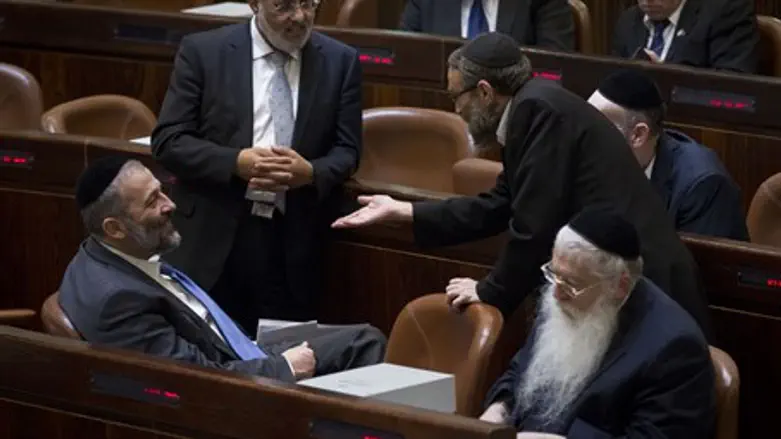
Hareidi women in Israel have begun an unprecedented campaign to have women candidates on the lists of religious parties for next March's early general election, media reported on Sunday.
"We want Hareidi women - five percent of the population - to have a say in the Knesset and demand that the heads of the Hareidi parties choose at least one candidate of their choice," activist Esty Reider-Indorsky, a driving force behind the move, told public radio.
However, the broadcaster reported that the leaders of the parties in question (Shas, with 11 of 120 seats in parliament) and United Torah Judaism (seven seats) have no intention of agreeing to the demand.
In a manifesto published on social networks online and supported by personalities including secular Israelis, the hareidi women say they are prepared to go as far as an election boycott.
"And we (women) represent half of the electorate," Reider-Indorsky told the station.
Hareidi women, recognizable by their modest clothing and hair styled under a scarf or wig, are already present in Israeli politics.
Although they have not been able to be candidates for hareidi parties, some have been elected standing for other parties and others work as assistants to members of parliament.
However, they have been held back by both the ban on women's candidacy in their own community's parties and by social stigmas on women in public office - with some candidates facing threats against their and their family's safety over their public roles.
In September 2013, Chairwoman Racheli Ivenboim of the Meir Panim-Co'ah Latet food charities was forced to withdraw her Jerusalem city council campaign after she received an avalanche of threats against her. Part of the threats were due to the catch-22 situation within hareidi communities: that while women cannot be elected to public positions within hareidi parties, running under a different ticket - in her case, the religious-Zionist Jewish Home party - is seen as a form of betrayal.
In the last general election in January 2013, the Hareidi parties - long-time kingmakers in Israeli coalition politics - found themselves
excluded from power for the first time in 30 years.
The general election will be held on March 17, after Prime Minister Binyamin Netanyahu called for a snap vote following the collapse of the coalition.
AFP contributed to this report.
